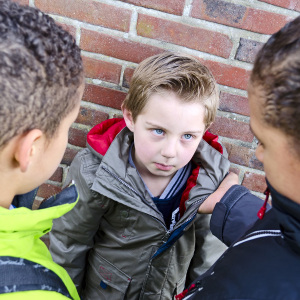Do you pay attention to how strangers greet you? Whether they say, “Hi”, “Good morning” or nothing at all? If you do, you are likely to recognize that the one or two little words – or no words at all – people use in greeting you provides you with tremendous information about the person. It tells you what kind of person he or she is. What does he value? What’s his purpose in life? What does he think about his fellow species members? It gives you an insight into the soul of the person.
Think about it: children often greet you with a happy, “Hi”, when they pass you by, thereby showing that they haven’t been socially conditioned (yet) to speak with two words. Children just greet you in the manner they feel like greeting you: pure enthusiasm captured in often not more than a single word. You will also recognize that children will often be the ones initiating the greeting produce. They will say, “Hi”, first. They are not afraid of being invasive or in any other way disturbing another person’s “privacy”.
Now take a look at an elder person. The ones of 65+. These persons will hardly ever initiate the greeting process. And if you say, “Hi”, they will be suspicious and think you want something from them. Often they look at you slightly angry, awaiting the, “Can I have 10 dollars, please?”- question. They have built a shield in order to protect them from the sorrows and needs of others. “Just” greeting someone is out the question. There’s always a Marxian motive behind every greet. Power structures are dominating the social atmosphere.
What about the 20-35 year old category? These people are often so caught up in their own motives, goals and targets that they pretend to have no time for greeting. Moving in a firm walk, secretly hoping that they will encounter as few people as possible on their path. And the ones that want to greet them with a nod or a, “Good day”, have to be very quick. Otherwise the train of “making money” and ambition has passed you by.
People between 35-55 are slightly better. These people have come to realize that they are not alone on this world and that their lives don’t turn about money only. They absorb the world around them, slowing their walking pace and being receptive to the greeting gestures of others. Often a well-meant, “Hello”, can be heard when they are greeted.
But besides the distinction between greeters and non-greeters, the group of greeters itself can be divided again into many subcategories. Factors to look at in the greeting process are tonality, lexicon usage and facial expressions. If you do this, you are able to unravel a big part of a person’s personality in less than a second.
An example: you are walking your “morning walk” through the neighborhood you’re living. You are about to pass by a guy your age (early twenties) on the sidewalk. When the distance between the two of you has passed the “three meter-point”, you utter an enthusiastic, “Hi”, with a well-intended little smile and a nod. The person responds with an, “A good morning to you”, also with a smile and a nod. From this you can infer that he is a social person, who finds being nice to his species member important. Also, he is likely to be a Christian or in any way conditioned by a religion having taught him to greet others in a formal and decent matter. Why else would you say “A good morning to you” to someone in his early twenties? The person probably has not many friends, but the friends he has are good ones who consider him to be a trustworthy person. The person probably votes for a social party and finds his family more important than his career.
Another example: you meet a student – in his early twenties – in the center of town. You again nod and say, “Hi”, and await his response. You get a firm nod, no smile, and a split-second of eye contact. This person probably doesn’t have much faith in people being essentially good. Although he doesn’t really want to great you, but he finds it potentially dangerous not to do so, so he nods. He probably has a broad social circle, but few true friends. The person is likely to vote liberal and is planning to make a lot of money in – preferably – the banking sector.
You find this analysis of mine far-fetched? Maybe it is. But I believe that when you’ll perform this analysis for yourself, you are likely to reach the same conclusions as me.
But what do you think?

